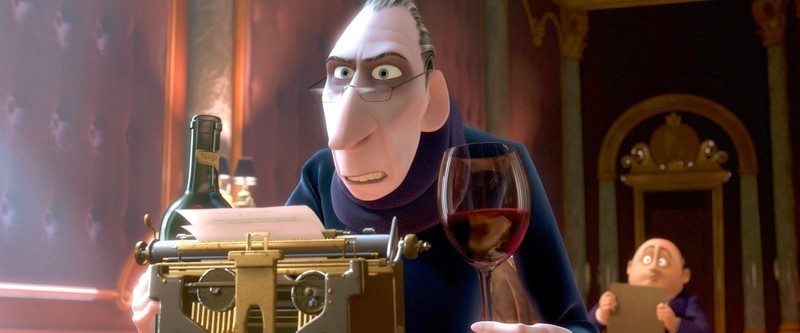Freeform 30 Days of Disney – Day 15: “Ratatouille”
My favorite character in Pixar Animation Studios’ 2007 hit Ratatouille isn’t Remy the rat who can cook (played by accomplished alternative comedian Patton Oswalt), nor is it Linguini the hapless romantic wannabe chef Linguini (voiced by Lou Romano of The Incredibles), or even the legendary French restaurateur Auguste Gusteau (Everybody Loves Raymond’s Brad Garrett). It’s food critic Anton Ego-- embodied by illustrious actor Peter O’Toole of Lawrence of Arabia and many other classic films.
Despite his fearsome status among the staff at Gusteau’s, Ego isn’t quite the villain of Ratatouille. That honor belongs to head chef Skinner (Lord of the Rings star Ian Holm), who wants nothing more than to squash Linguini’s ambitions despite his heritage, rid the restaurant of its pesky rodent problem, and inherit Auguste’s legacy for himself. Instead, Anton Ego represents the audience– not the audience of children and families that make up a good percentage of Pixar’s fanbase, but the audience of film critics and adult Disneyphiles who tend to find fault in just about everything the company puts out.
Yes, there are certain critics and fans who enter into movies or other media wanting to dislike them; I’m a little ashamed to say I was probably among them for a decent portion of my young adulthood. These people can be incredibly difficult to please, as only their preconceived notions of what makes art “good” will pass muster and earn a positive review or a coveted spot on their “Best Of” lists. But then every once in a while, as Ratatouille so wonderfully displays during its climax, an original work will touch them deep down in their souls, to the point where its impact and beauty are undeniable. And as Ego states during his third-act voice-over monologue, “There are times when a critic truly risks something, and that is in the discovery and defense of the new.”
Though he took over the Ratatouille project partway through its production at Pixar, I believe writer/director Brad Bird (The Iron Giant) sees himself in Anton Ego, as well. For every great artist likely has at least a touch of snobbery within their own tastes, and Bird’s clearly objectivist leanings would indeed cause him to discount Gusteau’s “Anyone Can Cook” motto much in the same way Ego does. But it seems to me that the fictional critic’s realization of what he believes “Anyone Can Cook” really means likely came directly from the filmmaker's own heart: “Not everyone can become a great artist; but a great artist can come from anywhere.”
The moment at the film’s turning point when Ego tastes the titular ratatouille dish (prepared by Remy and his rat friends) and is immediately transported back to his childhood remains one of my favorite beats in modern movie history– not only for what it says about the function of art and the role of the critic, but also for its sheer emotional weight. For Ratatouille is, on its surface, a movie about food, but Ego’s epiphany also serves as a metaphor for the way artistry moves us as human beings. In that moment, Ego is us and we watching the movie become him. It’s a gorgeous, transcendent sequence surrounded by a love letter to creativity.
I’d like to think I took Anton Ego’s transformation as a model for how to be a better movie fan, though my own personal rehabilitation in that area probably took another few years after the movie came out (what does anybody under 30 really know, anyway?) More than a decade later, I hope I’ve learned how to enjoy art for what it is and not what I expect it to be. And I’ve certainly become more willing to let genius surprise me from unexpected places.
Ratatouille airs today at 2:15 PM on Freeform as part of the basic cable channel’s 30 Days of Disney programming block.



